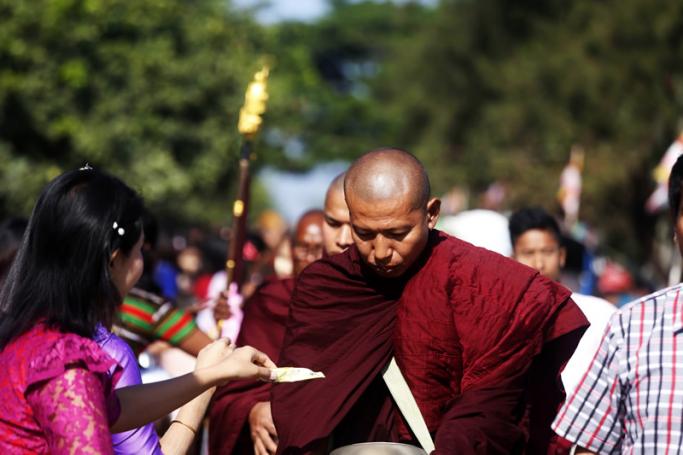Mizzima
Unlike previous uprisings in Myanmar since the February 2021 coup Myanmar’s Buddhist monks and nuns have mostly stayed on the sidelines.
In contrast to previous political turmoil, the resistance against the coup is pursuing a secular agenda that includes violent action.
The low profile of the Sangha (Buddhist clergy) has allowed space for youth – particularly young women – to take on leadership roles in the struggle. This bold departure from generations of male Burman Buddhist gerontocratic leadership in Myanmar is encouraging for the future but could bring a backlash.
The International Crisis Group has bought out a report into the issue titled: A Silent Sangha? Buddhist Monks in Post-coup Myanmar.
According to International Crisis Group Policymakers and international donors should carefully monitor shifting views on the appropriate role of Buddhism and the Sangha in Myanmar and look out for any conservative reaction that could compromise intercommunal relations, social stability, human rights or future democratic development.
in a summary of the report it says that the Myanmar Sangha has played a mostly marginal role in the anti-regime resistance following the military’s February 2021 coup d’état.
The National Unity Government (NUG) and its revolutionary allies are pursuing an agenda that is secular and that embraces armed resistance, both features that the monastic community finds hard to reconcile with Buddhist teachings.
The Sangha’s step to the side is a break from the past, when monks played a significant and vocal role at moments of political crisis. It has also made room for youth – particularly young women – to take on prominent roles in the struggle, an important shift from a tradition of elderly, male leadership drawn predominantly from the Burman Buddhist majority.
While Myanmar’s future path is unclear, these trends are likely to be important as they could herald social upheaval, intercommunal tensions or a conservative counterreaction.
In previous periods of political struggle in Myanmar – the independence movement of the early 20th century, political protests in the 1970s, 1980s and 1990s, and the 2007 Saffron Revolution – monks were highly visible, despite widespread religious and cultural unease with monastic involvement in political affairs.
But since the coup, the Sangha has been divided. Some prominent monks have curried favour with the regime by explicitly supporting it and some others have been vociferous opponents.
Most of the monastic community, however, has avoided taking any public position, wary of supporting a secular-minded resistance movement engaged in armed struggle, fearful of the consequences of openly challenging the regime and also reluctant to incur the wrath of public opinion by supporting it.
As a result, it seems unlikely that the Sangha will emerge as a strong voice either for or against the junta.
Critically, the monks, scholars, resistance fighters and activists interviewed by Crisis Group agreed that even should the monastic community unite behind a particular position, it would be unlikely to influence the conflict’s outcome.
Despite his performative religiosity, junta chief Min Aung Hlaing is very unlikely to be convinced by any monk, however venerable, to eschew violence or set a radically different political direction. Nor is the general likely to frame the crisis in religious or Buddhist nationalist terms, as some fear he might do in an attempt to win over the Sangha.
It is furthermore improbable that any monastic figure could speak to or influence the myriad anti-coup forces.
Nevertheless, according to Crisis Group, the sidelining of monastic figures, long a key part of Myanmar’s social and political fabric, could have important implications. It represents a bold departure from generations of male Burman Buddhist gerontocratic leadership in the country.
Myanmar’s political trajectory is uncertain, and there is no end to the crisis in sight. But this moment is likely to be formative in the country’s political life, irrespective of whether the resistance succeeds in its aim of ousting the regime.
Whatever dispensation follows the current tragic phase of Myanmar’s history, the shifting moral and religious value systems in the country, and any backlash, will likely have a major impact on intercommunal relations, politics and conflict.












